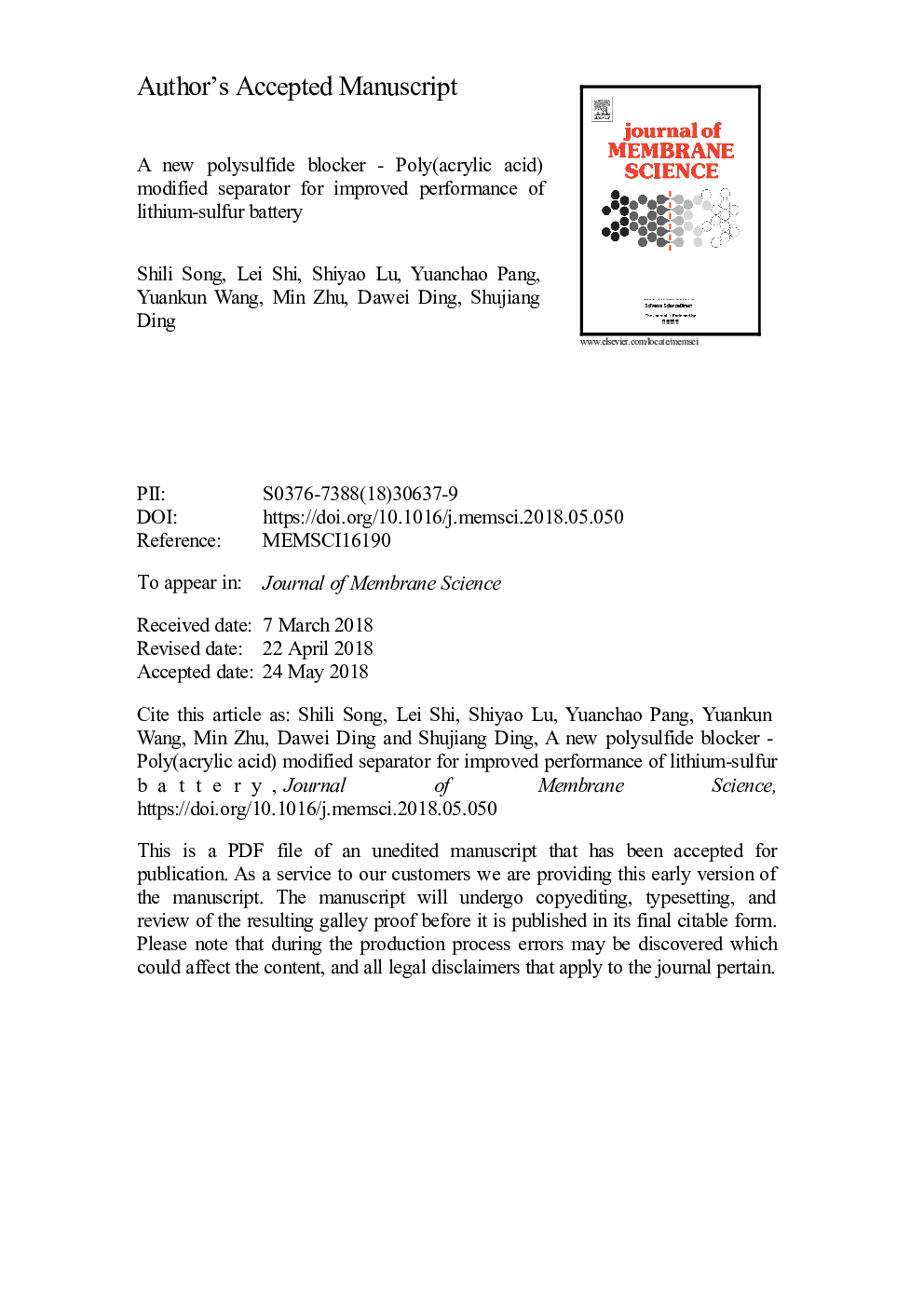| Article ID | Journal | Published Year | Pages | File Type |
|---|---|---|---|---|
| 7019692 | Journal of Membrane Science | 2018 | 27 Pages |
Abstract
Lithium-sulfur (Li-S) batteries gain great popularity due to its high theoretical energy density, low cost, and natural abundance of sulfur active elements, whereas, "shuttle effect" of soluble polysulfide seriously deteriorates their electrochemical performance, hindering their practical applications. Herein, we demonstrate a strategy that graft poly(acrylic acid) (PAA) on the surface of polypropylene (PP) separator to improve the electrochemical performance of Li-S batteries by impeding the “shuttle effect” of polysulfide. The PP grafted with PAA (PP-g-PAA) separator allows Li+ migration while rejects polysulfide anions by electrostatic repulsion. Consequently, this permselective separator restrains the polysulfide anions on the cathode side. In addition, the total reaction process of preparing PP-g-PAA separator is facile and low cost. Owing to the strong structure stability between PP and grafted PAA, a uniform and consistent blocking of the polysulfide shuttle during the charge-discharge process could be realized. An ultra-low decay value of 0.074% per cycle for the first 600 cycles is realized in this work. The electrochemical properties are significantly improved compared to the cell with PP separator. Such a permselective separator can be used in various electrodes and working conditions, which is promising for the construction of high performance batteries.
Related Topics
Physical Sciences and Engineering
Chemical Engineering
Filtration and Separation
Authors
Shili Song, Lei Shi, Shiyao Lu, Yuanchao Pang, Yuankun Wang, Min Zhu, Dawei Ding, Shujiang Ding,
